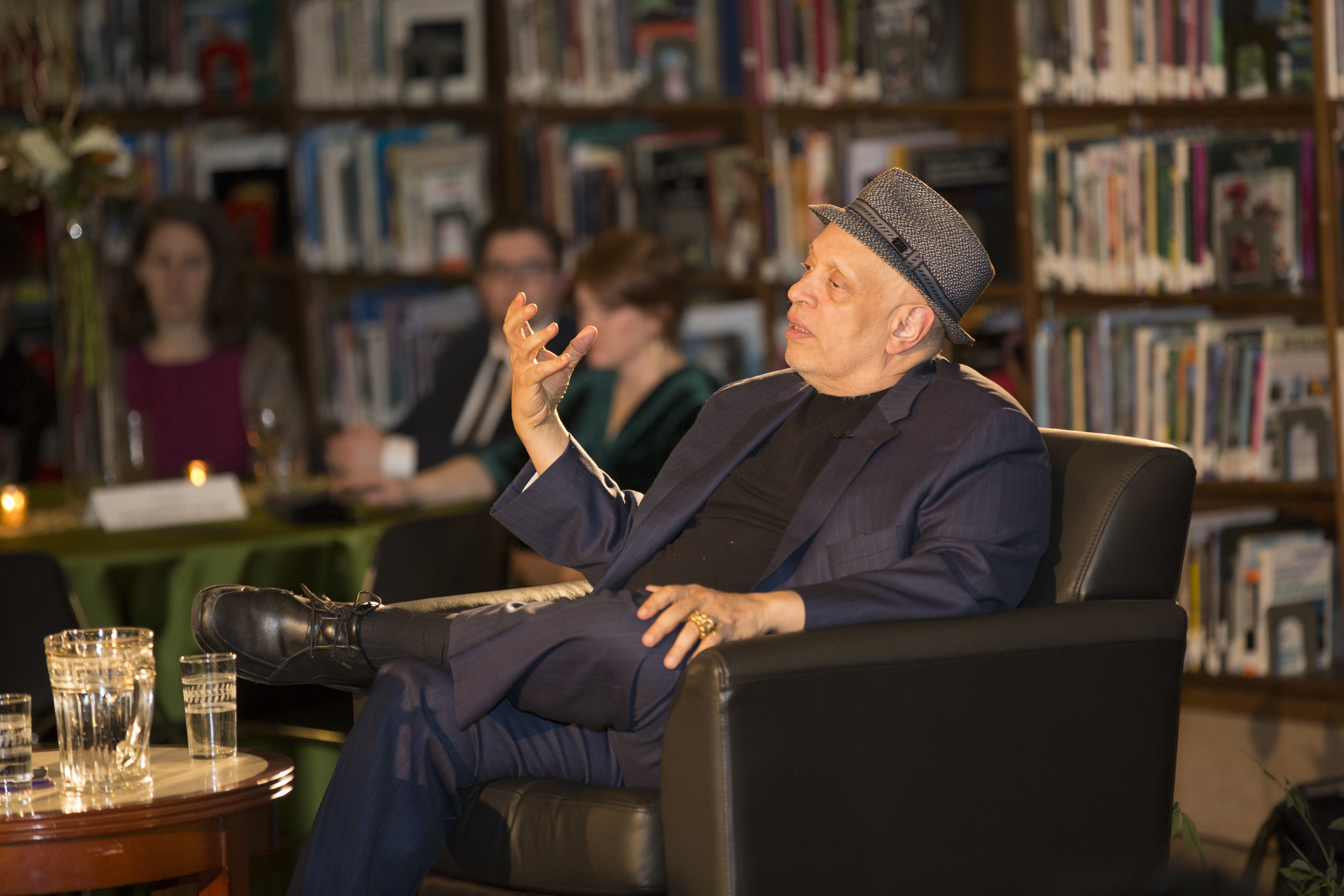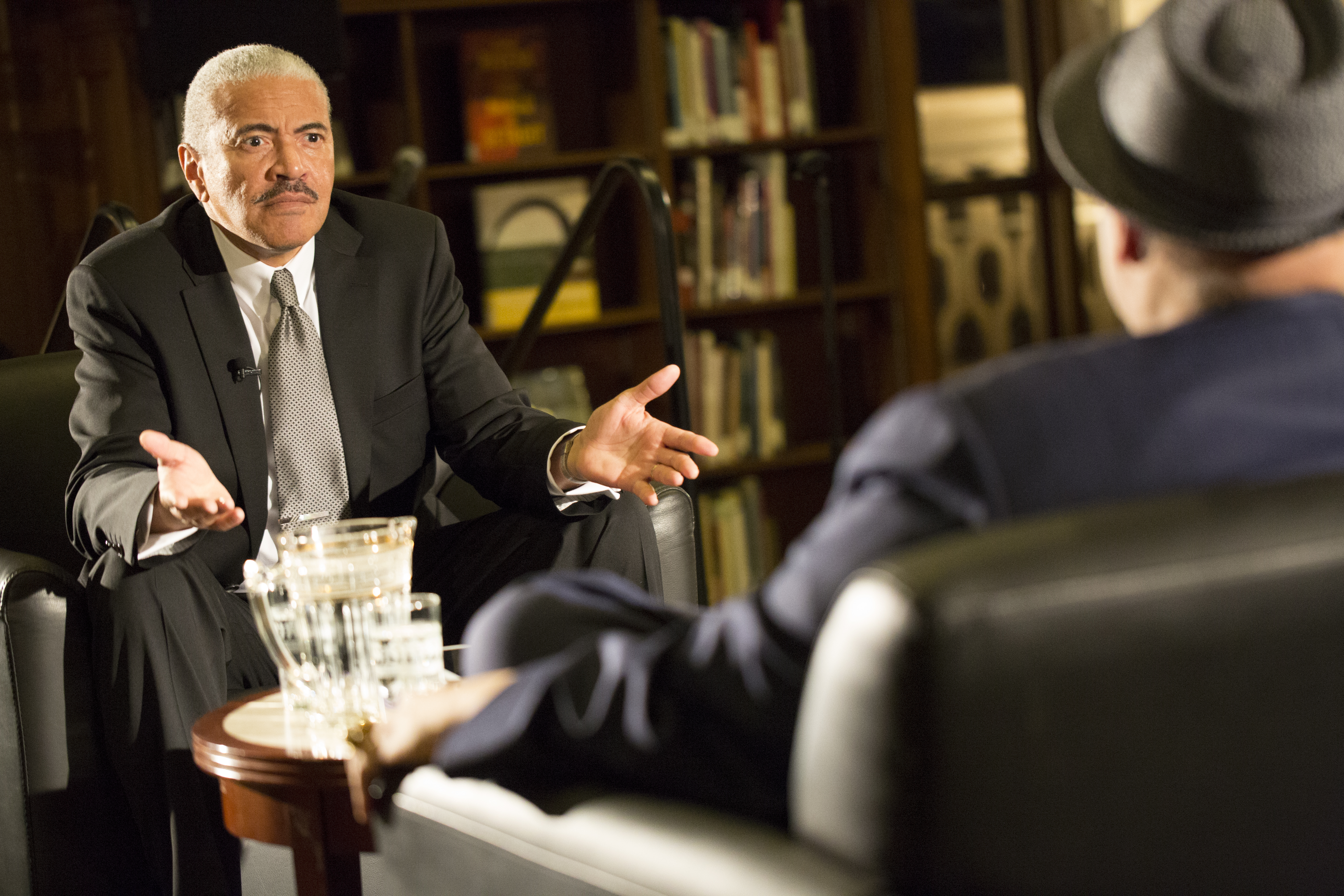
To Walter Mosley, the question of how he manages to produce so many books per year doesn’t quite make sense. Because Walter Mosley is a writer. An extraordinarily good writer. And writers write. Just like lawyers practice law, actors act, doctors doctor and dentists fix teeth. It’s what he does.
But being the exceptional writer that he is, Mosley has a more succinct – and pungent – way of making his point to an interviewer who managed to grab a few minutes alone with the award-winning author prior to his Saturday evening appearance at the Detroit Public Library as the featured guest for DPL’s 150th Anniversary Celebration and fundraiser:
“I love to write, and I write every day. People ask me about the will to write, or how did I find the inspiration to write, and I said, well if you had a friend that said they got up with their husband every day and said they had vigorous sex with them for an hour, would you ask them how they found the inspiration for that? If you love to do something then you do that thing.”
Later, during the main event, Mosley expanded on the theme:
“I write every day. Three hours a day 7 days a week. I wrote this morning before I came here. The more you write, the more you write. It really is true. A lot of people, they get migraines, they don’t want to write, they want to do other things, they want to make children. And that’s fine. But the idea is that I love writing. Balzac wrote 180 novels in a 45-year period. Just do the math. That was 2-3 novels per year. With a quill pen. On Parchment. If you’re a writer, you should be writing, right?”
As for those who ask him how they can get their children to read:
“People come up to me all the time and say how do I get my children to read? And I ask them, ‘Well, do you read?’ And they go, Well, I’m not talking about me. Well, if you smoke cigarettes and beat your wife, guess what?”
So there you have it. This is your brain on Walter Mosley. Any questions?
There’s a possibility that the sold out weekend event could have turned out better, but it’s hard to imagine how. I had heard that Mosley wasn’t that keen on being interviewed by journalists, no doubt due at least in part to an overload of stupid questions, but on Saturday evening Mosley proved to be the perfect guest and a near-dream interview for Huel Perkins of Fox 2 News who conducted an admittedly masterful and extremely well-informed one-on-one that produced numerous highlights that kept the audience enthralled for the entire evening.

And one thing became clear very early; Mosley can tell a story out loud to a rapt audience nearly as well as he can spin a page-turning tale. Like the story of Mosley’s father whose mother died when he was 7, followed by the death of his father – Mosley’s grandfather – one year later. By the age of 9, Mosley’s father jumped trains from his native Louisiana to Houston, Texas to locate his maternal grandfather. When he arrived, Mosley’s grandfather informed the nine-year-old that he was welcome to sleep on the front porch, but he wasn’t going to feed him.
“And he made a life from that,” said Mosley.
Mosley’s father grew up, which was a minor miracle by itself, and went on to marry a white Jewish woman after he had moved to Southern California who also happened to be a Communist revolutionary. When asked by Perkins how hard it must have been to grow up the product of a mixed marriage in Watts, Mosley responded, “Well you know, it was easier growing up black and Jewish in Watts than black and Jewish in Beverly Hills, that’s for sure.”
Later, when discussing his most famous book, “Devil in a Blue Dress,” later made into a movie starring Denzel Washington and also praised by none other than President Bill Clinton, Mosley talked about his murderous yet somehow loveable character Mouse, who happens to be the best friend of the lead character Ezekiel Rawlins. Addressing the issue of why so many readers seemed to love Mouse, despite his overtly violent and dangerous nature, Mosley pointed out that Mouse was someone recognized by many as someone who wasn’t afraid. Period. And who could be counted on to deliver street justice when no other form of justice was available.
“He’s heroic in the same way that Long John Silver is heroic. Or El Chapo down in Mexico. There are people who represent what the common everyday person needs. We know that we’re in trouble. We know that the police are not gonna protect us. We know that the government and the president and everybody else is lying to us. We know that. But Mouse, we can trust him..All of America is racist. The only person who’s not racist is Mouse, and he’s a fictional character.”
On science fiction, which Mosley writes as well, not to mention erotica…
“Science fiction is really important for black people because it predicts the future. …In the first Star Wars, not only were all the characters white but they had blonde hair and blue eyes. It was an Aryan future.”
And finally, on Detroit:
“Detroit, I think, contains the spirit of America. All of the good and all of the bad. People like Henry Ford who represent all of the good and all of the bad and also all of the problems of America are incredibly concentrated. All of the cultures, the religions, the fights that we’re having internally and internationally. Everything is here. I like it.”